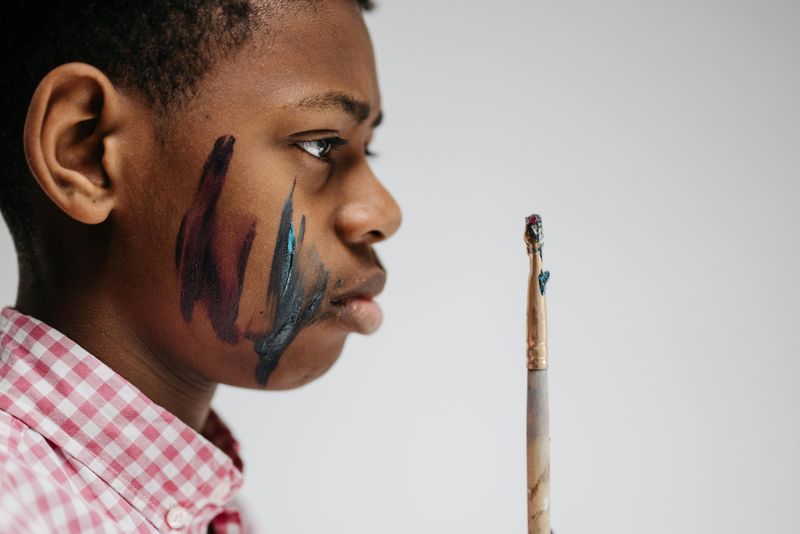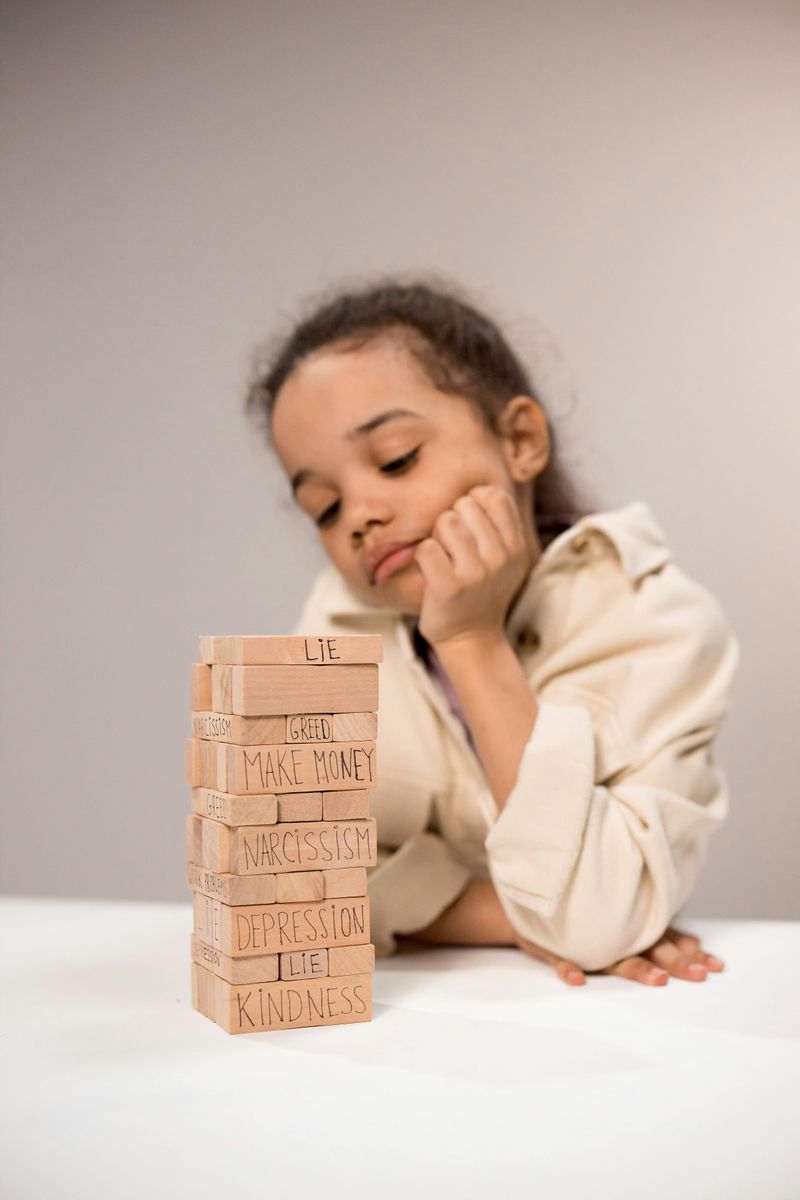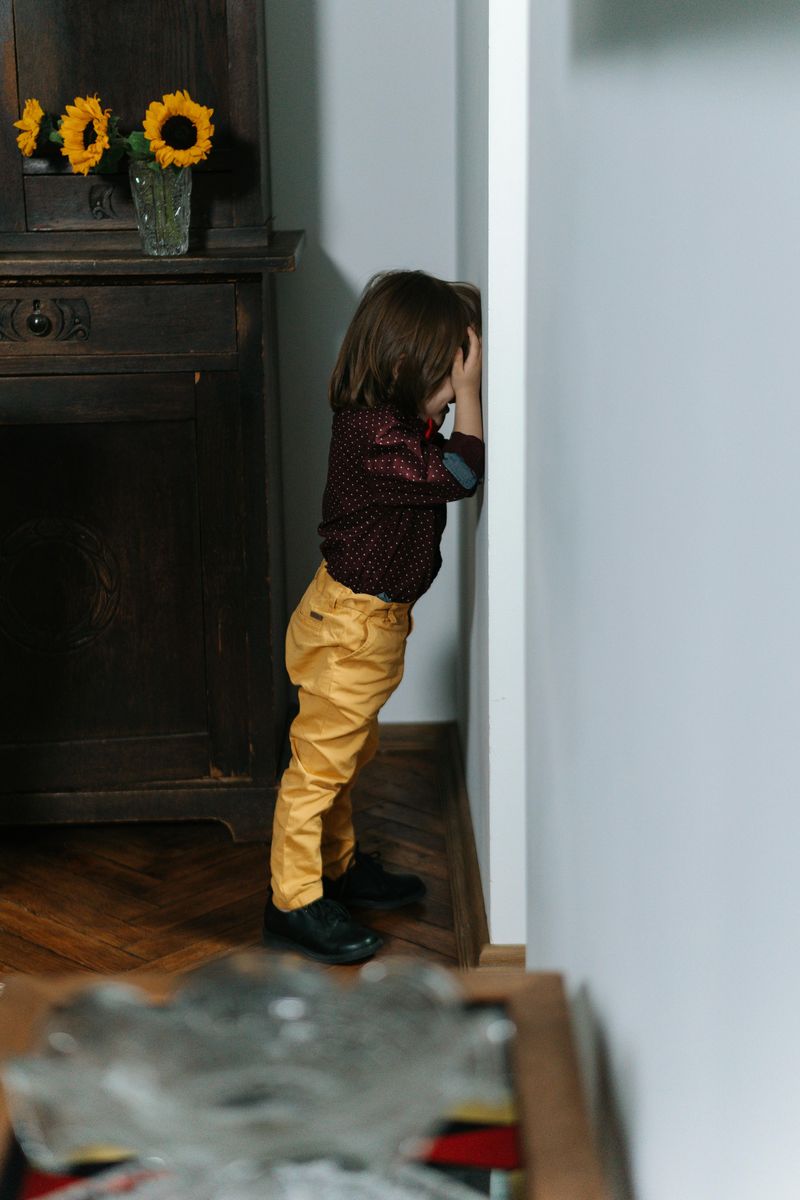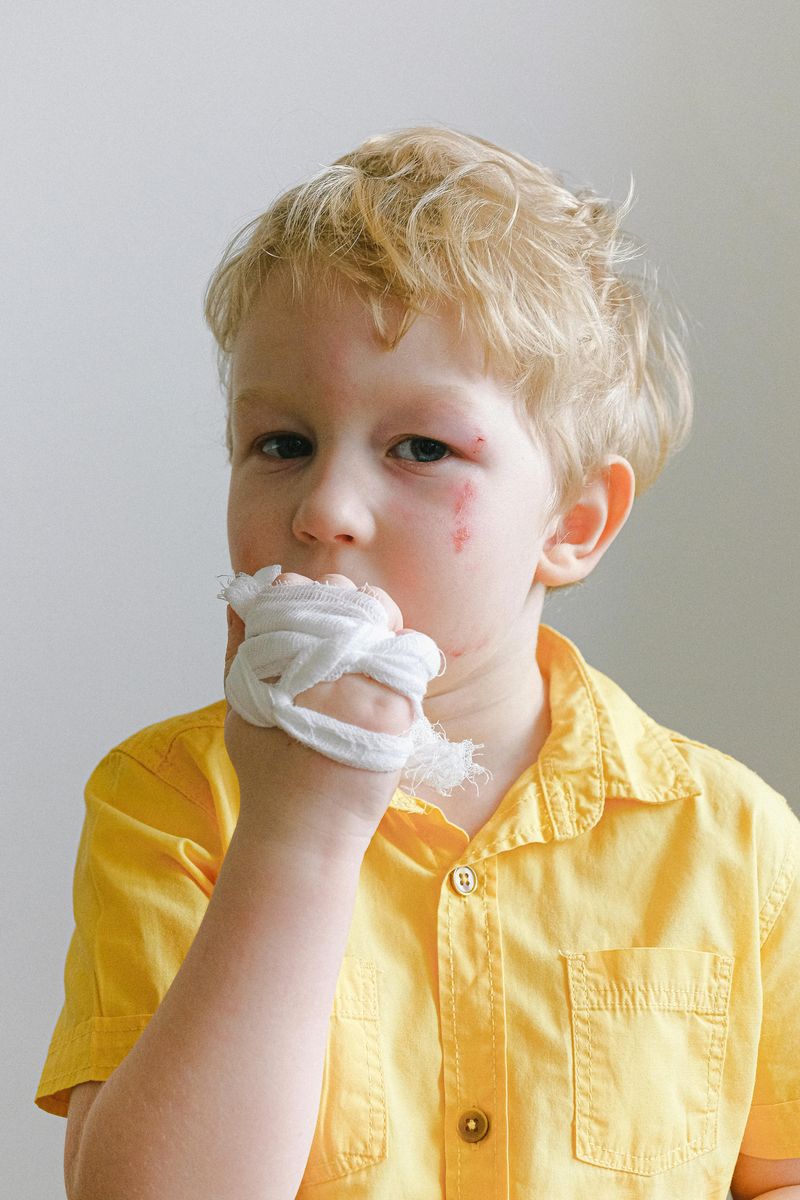16 Childhood Struggles You Faced Because the Grown-Ups Around You Just Weren’t Ready

Growing up should be filled with support, safety, and guidance from the adults in our lives. But for many of us, childhood became a training ground for coping with emotional unavailability. We navigated complex situations while the grown-ups who should have helped us were struggling with their own unresolved issues. These experiences shaped how we view ourselves and relationships, often leaving lasting imprints that follow us into adulthood.
1. Emotional Neglect Left You Starving for Connection

Your feelings were tossed aside like yesterday’s newspaper. When you cried, adults told you to “toughen up.” When you were excited, they were too busy to notice.
This constant dismissal taught you that emotions were inconvenient or shameful. You learned to bottle everything up, creating a sealed container of unprocessed feelings that eventually threatened to burst.
Many adults simply lacked the emotional vocabulary themselves, unable to give what they never received. You became an emotional orphan, figuring out the complex landscape of feelings without a map or guide.
2. Parentification Robbed You of Your Childhood

Mom’s having another breakdown, so you’re making dinner for your siblings again. At eight years old, you already knew how to pay bills, make excuses for absent parents, and be the emotional support person for adults who should have supported you.
Your childhood disappeared under the weight of adult responsibilities. While friends worried about playground games, you worried about keeping your family functioning.
This role reversal created a strange paradox: mature beyond your years yet missing crucial developmental experiences. The message was clear—your needs came last, if they were considered at all.
3. Gaslighting Made You Question Your Reality

“That never happened” became the soundtrack of your childhood. Your memories, perceptions, and feelings were constantly invalidated by the very people meant to help you understand the world.
You’d express hurt feelings only to be told you were “too sensitive” or “making things up.” This systematic denial of your experiences left you constantly second-guessing yourself.
The confusion was profound—were your feelings wrong? Were your memories false? Many children who experienced this manipulation grew into adults who struggle to trust their own perceptions, perpetually seeking external validation for their reality.
4. No Emotional Education Left You Flying Blind

Remember feeling that knot in your stomach but having no words to describe it? Nobody taught you that was anxiety. Your emotional landscape was like a foreign country without a dictionary.
Adults around you either suppressed their feelings or exploded with them. There was no healthy middle ground, no lessons on identifying emotions or processing them constructively.
You were left to interpret complex feelings through trial and error, often developing unhealthy coping mechanisms. This emotional illiteracy followed many into adulthood, creating difficulties in relationships where emotional intelligence suddenly became crucial for connection.
5. Boundary Violations Taught You That “No” Wasn’t Allowed

“Give Aunt Betty a kiss” wasn’t a request—it was a command. Your body, your space, your privacy, and your possessions were all subject to adult override without explanation.
The adults who trampled your boundaries often justified it with “because I said so” or “don’t be disrespectful.” Your attempts to establish personal limits were labeled as defiance or ingratitude.
This boundary confusion created lasting damage. Many children raised this way grew up unable to recognize when their boundaries were being violated in adult relationships, or felt guilty for having any boundaries at all.
6. Walking on Eggshells Developed Your Hypervigilance

You became a master mood detective by necessity. Before entering a room, you’d pause to assess the emotional temperature—was Dad angry today? Would Mom burst into tears if you mentioned school?
This constant state of alertness wasn’t just exhausting—it rewired your developing brain. You learned to scan for threats continuously, analyzing facial expressions, tone shifts, and body language for warnings of coming storms.
Many adults who grew up this way still jump at loud noises or apologize excessively for minor mistakes. Your nervous system was trained for danger, not ease, creating a persistent undercurrent of anxiety that colored your entire childhood.
7. People-Pleasing Became Your Survival Strategy

Gold stars, perfect behavior, and constant accommodation became your currency for purchasing scraps of affection. You learned early that love was conditional—available only when you performed correctly.
Your authentic self disappeared beneath layers of accommodation. “What would make them happy?” replaced “What do I want?” as your guiding question.
This chameleon-like adaptation helped you survive emotionally volatile environments but at tremendous cost. Many former people-pleasing children struggle with identity issues as adults, having spent so many formative years shape-shifting to meet others’ expectations that their true preferences and personality remain undiscovered territory.
8. Your Self-Worth Became a Casualty of Adult Shortcomings

“You’re so stupid!” “Why can’t you be more like your sister?” The casual cruelty of these comparisons and criticisms landed like hammer blows on your developing sense of self.
Adults projecting their frustrations onto you didn’t realize they were writing a script you’d repeat to yourself for decades. Their words became your inner voice.
Without consistent messages affirming your inherent value, you constructed a wobbly self-image based on external validation. Many children raised this way entered adulthood believing they were fundamentally flawed or unlovable, carrying an invisible weight of shame for simply being themselves.
9. Inconsistent Care Planted Seeds of Abandonment Fear

Love appeared and vanished unpredictably in your childhood. One day, warmth and attention flowed freely; the next, emotional connection disappeared without explanation.
This rollercoaster created a profound insecurity. You never knew if affection would last or suddenly evaporate, leaving you constantly braced for rejection.
Children need reliable emotional connections like plants need consistent watering. Many who experienced this inconsistency developed a deep-seated fear that anyone who loves them will eventually leave. This fear often manifests in adult relationships as clinginess, pushing people away preemptively, or choosing unreliable partners who reinforce familiar abandonment patterns.
10. Attachment Problems Followed You Into Relationships

The blueprint for all your future relationships was drawn by those first crucial connections. When adults were emotionally unavailable, unpredictable, or frightening, your attachment system developed adaptations.
Some children became anxiously attached—constantly seeking reassurance and fearing rejection. Others developed avoidant patterns—keeping people at arm’s length to prevent getting hurt again.
These early attachment wounds don’t just disappear with age. Many adults still operate from these childhood patterns, either clinging desperately to relationships or maintaining emotional distance as protection. The unspoken relationship lessons from childhood became the unconscious operating manual for adult connections.
11. Achievement Became Your Only Path to Visibility

Report card day was the only time some adults truly saw you. Perfect grades, sports trophies, or performance awards became your desperate bid for attention and approval.
This conditional recognition taught a dangerous lesson: your value was tied exclusively to your accomplishments. Being became secondary to doing.
Many high-achieving adults still struggle with this legacy, driving themselves relentlessly while feeling empty inside. The perfectionism that began as a child’s strategy to gain love transformed into an exhausting treadmill. Behind impressive resumes often hide former children who learned that resting or simply being themselves was never enough.
12. Emotional Regulation Skills Were Never Installed

Big feelings crashed through you like tsunamis with no warning system or evacuation plan. Nobody taught you how to ride these emotional waves—you were simply expected to suppress them or face consequences.
Adults who couldn’t manage their own emotions certainly couldn’t guide you through yours. Instead of learning healthy regulation, you developed extreme coping mechanisms: shutting down completely or explosive outbursts.
This missing emotional education created lasting difficulties. Many adults who missed these crucial lessons still struggle with proportional responses, finding themselves either emotionally numb or overwhelmed by feelings that seem to come out of nowhere.
13. Adults Never Modeled Accountability or Repair

“I’m sorry” were words rarely heard from the grown-ups who hurt you. Their mistakes, outbursts, and harmful behaviors typically went unacknowledged, leaving emotional wounds festering without closure.
This absence of accountability taught you that power means never having to apologize. Many children internalized the message that they were somehow responsible for adult misconduct.
Without witnessing healthy repair after ruptures, you missed crucial relationship skills. Many adults raised this way struggle with admitting mistakes or apologizing, having never seen it modeled. Others became excessive apologizers, taking responsibility for everything—a coping mechanism developed in households where someone had to be accountable.
14. Role Confusion Left You Without Solid Ground

“You’re so mature for your age” wasn’t actually a compliment. It was a sign you were carrying burdens no child should bear—being a parent’s confidant, therapist, or emotional support animal.
Adults shared inappropriate information, leaned on you for comfort, or expected you to navigate complex situations beyond your developmental capacity. These blurred boundaries created profound confusion about your place in the world.
Many children thrust into these inappropriate roles grew up with an unstable sense of self. The question “Who am I?” becomes particularly challenging when your formative years were spent being who others needed you to be rather than discovering your authentic identity.
15. You Became Collateral Damage in Adult Emotional Storms

Their unprocessed trauma, relationship conflicts, and emotional baggage created the weather system of your childhood. You learned to anticipate the lightning strikes of adult meltdowns and navigate the flooding of their unregulated emotions.
Children naturally believe they’re the center of their universe. When caught in adult emotional chaos, many concluded they were somehow causing it.
This misplaced responsibility created a heavy burden. Many adults still carry the habit of managing others’ emotions or inserting themselves as peacemakers in conflicts that aren’t their own. The hyperresponsibility developed as a survival mechanism in childhood became an exhausting way of moving through the world.
16. Your Existence Became Background Noise to Busy Adults
“Not now, I’m busy” became the soundtrack of your attempts to connect. Your thoughts, discoveries, and needs were routinely postponed until a convenient time that rarely arrived.
This chronic dismissal taught you to make yourself smaller, quieter, and less needy. Many children learned to silence their voices entirely, becoming the “easy” child who never causes trouble.
The psychological impact of this invisibility runs deep. Adults who experienced this childhood neglect often struggle with assertiveness, believing their needs don’t matter or feeling guilty for taking up space. The message absorbed in those formative years—that your presence was an inconvenience—created a lasting wound to your sense of fundamental worthiness.

Comments
Loading…